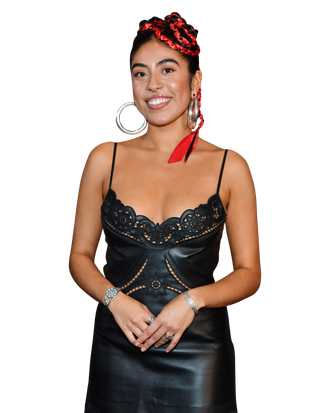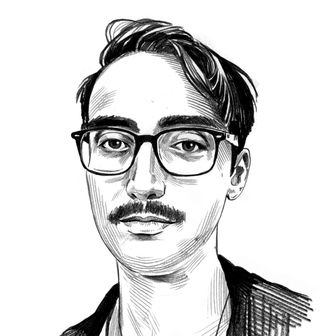
With Thomas Rainwater (Gil Birmingham), the chief of the Broken Rock Indian Reservation, Yellowstone underlines the fraught relationship between present-day Native Americans and the descendants of white settlers. But Teonna Rainwater (Aminah Nieves), an ancestor of Thomas, encounters far more unrelenting horrors as the principal Native perspective of prequel spinoff series 1923. While both series emphasize the extent to which white America ignores the Indigenous peoples it displaced, 1923 tells the story of Teonna’s forced assimilation via an unflinching depiction of one of the hundreds of government-funded Catholic boarding schools for Indigenous children — a setting rarely depicted in such detail on television. At these institutions, the goal was to stamp out Native customs and traditions and “civilize” children by immersing them in European American culture.
Across the first four episodes, we see Teonna experience repeated, brutal corporal and sexual abuse at the hands of her instructors, primarily Sister Mary O’Connor (Jennifer Ehle), Father Renaud (Sebastian Roché), and Sister Alice (Kerry O’Malley). In the fourth episode, she finally snaps, choking Sister Mary to death and fleeing the school. But escape doesn’t guarantee safety; in “Ghost of Zebrina” and “One Ocean Closer to Destiny,” Teonna deals with the difficulties of trekking aimlessly through the wilderness, hiding from wolves and fearing discovery at every turn. Portraying the harsh realities of Native life at the time can be emotionally draining, especially for a performer whose ancestors lived through it. But for Nieves, it’s worth facing the pain of inherited trauma if it means sharing such an under-told story. “It’s important to tell our stories as truthfully as we can,” she says. “It opens a space to have people take accountability for what has been done.”
What were your initial reactions to seeing the 1923 script?
I was like, Aw, man, this is a tough one. I was nervous and a little scared to tackle it. My mom was there every step of the way, and she was like, “Aminah, you have to do it. It’s for us!” I think I put it off until the very last second, and I was like, “Ugh, okay.” So we did the self-tape and sent it in right before the deadline.
With a story like this, it’s often tricky to walk the tightrope of being honest about the brutality of history without getting gratuitous or exploitative. Did you ever worry about your scenes landing on the wrong side of that divide?
I was terrified, Ben. Not only for the show, but I was scared for our people. Mo Brings Plenty, Yellowstone actor and 1923 American Indian affairs coordinator, said, “This isn’t just a Native issue. It’s a human rights issue.” Everything Teonna is moving through affects more than just Indigenous communities. Violence happens in every community. There’s violence in the entire 1923 universe. It was a scary thing to sit with, and I was hesitant about landing on the wrong end.
In the scene when Teonna kills Sister Mary, she tells her, “Know it is the land that is killing you. I am the land, and I am killing you.” What does that mean to you?
That was one of my audition scenes. I had to do it twice. I did it in English and in Crow. Our land is us, we are the land; that’s just it. Outside of acting, I’m an ethnobotanist, so I have an even deeper connection with the land. And that scene broke me. I speak on it so heavily: We are the land. We have to live in tandem with the space. We can’t be separate. We are all one living organism together. We are the plants. We are the animals. For Teonna, I think saying those words was basically being like, “Listen. We are more alike than we realize, and it’s unfortunate that it came to this. I hate that we’re here, and I hate what you’ve done to me and my people, and I hate what I’m doing to you because I don’t want to hurt you. But it is my duty to let you know that we are all one, and this is my last good-bye.”
Most of your scenes in the first four episodes have featured intense violence. What’s it like shooting those moments? Is there an intimacy coordinator?
We had an intimacy coordinator for pretty much all that stuff. I don’t think I’ve ever been on a set that is this integrated and loving; the moment I met Jennifer and Sebastian and Kerry and Leenah Robinson, it was immediate. We all fell in love with one another. We sought refuge in one another, because you kind of have to. You’re navigating these tough stories that aren’t made up. You have to have a level of respect and compassion. We had a lot of safe words. We also had long talks, and we always hung out outside of set, which really built that tenderness and safety between us.
The design of the boarding school is impressive. What did it feel like shooting there?
For me, it was a very spiritual experience. A lot of times, I felt like I was a passenger in my body while other people were navigating my limbs for me. I felt like my ancestors were really coming to be with us and perform. It was crazy. We also had some Indigenous people who were part of the designs as well. Once you enter set, you’re immediately transported.
There are moments of violence that would be framed as almost satisfying in another show, but when we see Father Renaud physically punish Sister Mary for beating Teonna in the first episode, it keeps going. It doesn’t feel good at all, and it makes the viewer want to escape this institution of violence, not carry on that cycle.
That’s the thing that drew me into telling this story. I don’t think I’ve ever witnessed on such a big platform, on this scale, our stories being told this truthfully. They really believed their motto, “Kill the Indian, save the man,” because that’s what Catholicism taught. They were so scared of us because they believed it to their core. The only way to put ease to their souls was to be violent. It’s disgusting. To be such a way toward a child, there’s no justification.
For years, Teonna has had to focus so much on survival, and now on escape. What do you hope she can find if she makes it out?
My big hope is that she’s able to get back to the res and sit with herself and her family. With any trauma that you move through, it hits you in waves, and especially with T, she’s not just feeling the trauma of what has happened to her. She’s feeling the trauma of what is happening to her family, to her cousins. I wish for Teonna to do everything she loves in this life and be impactful to her community.
You’ve spoken about how your mom played a really important role in tackling this character and subject. What has your family’s response been to the show come out?
They’re so proud, but it’s been hard for them. For my dad, it was really, really hard for him to sit in the premiere. I actually had to walk him out during Teonna’s scenes. We talked about it, because he was crying really loud. He was very triggered. He told me he saw not only his daughter, but his aunties. I do this not for myself; I do this for my family, and I do this for our Native communities across the world. If this is it for me, this is fine. My family is being seen, and our people are being seen.
I’d imagine it’s a strange experience, watching yourself back onscreen in this context.
It’s weird. My aunties are like, “We don’t see Aminah.” They do have a distinction, because I am such a cheeseball, man. Outside of Teonna, I never stop smiling.
Do you see yourself doing more projects like this in the future?
I like telling real stories. Telling a story like this allows me to rewrite our narrative. As hard as it is, it’s also healing. Especially when I’m playing Teonna, I feel like it’s not just me speaking those words, it’s always other people coming through and speaking them for me. I think telling truthful stories gives my ancestors a chance to say what they couldn’t have said before.
This interview has been edited and condensed for clarity.


